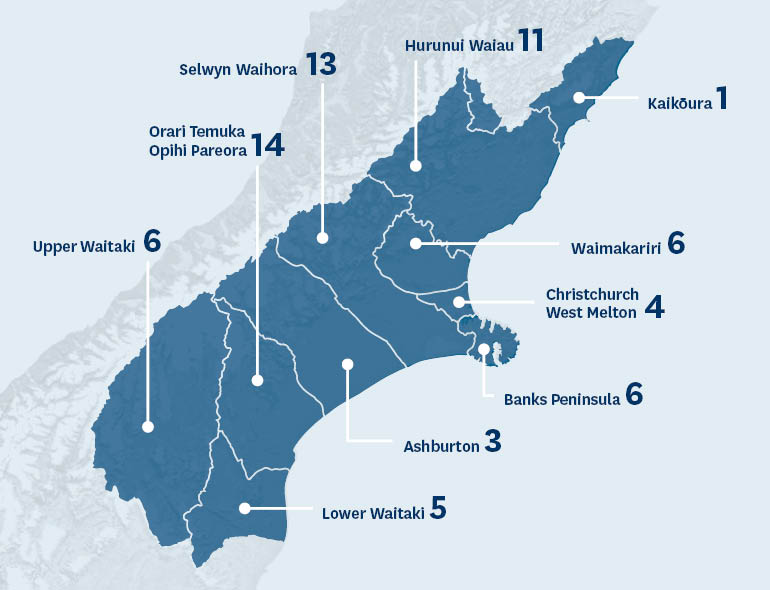Stock exclusion from Canterbury's waterways
Goal
Stock exclusion from waterways: respond to 80% of intensively farmed stock incidents within two days.
Progress
Responded to 100% of intensive stock in waterways incidents within two days.
Responded to 93% of non-intensive stock in waterways incidents within five days.
About this goal
For an incident with intensively farmed stock, animals are removed as soon as practicable from waterways. We then work with the land-owner to remediate any damage and agree on preventative measures such as the fencing of waterways.
For non-intensive stock, the focus is to ensure no damage has occurred and educate landowners on stock exclusion rules. Where damage has occurred we take appropriate enforcement action.
Why does it matter?
Stock in our waterways can have a direct impact on water quality or ecological values and is a major area of concern.
Intensively farmed stock: Pigs, dairy cattle and other cattle or deer either on irrigated land or being break-fed on winter crops.
Non-intensively farmed stock: All sheep, beef cattle or deer excluding those on irrigated land or those being break-feed on winter crops.
What's being done?
Environment Canterbury and Fish & Game have worked together on a response protocol and have set targets for responding to reports of stock in waterways.
Our first priority is to get stock out of the waterway to make sure there is no further damage. We then investigate to determine what action should be taken including enforcement.
This new protocol has resulted in more site visits, more enforcement action and, most importantly, more stock kept out of waterways.
The figures illustrate that we take this matter very seriously and are committed to protecting Canterbury’s waterways from the damage caused by livestock.
Find out more
- Read the latest Stock Exclusion report.
- Find out more about the rules for stock access to waterways in our region in the Farmers' hub.
- Find out how ratepayer funding supports this work with our Rates Tool.

